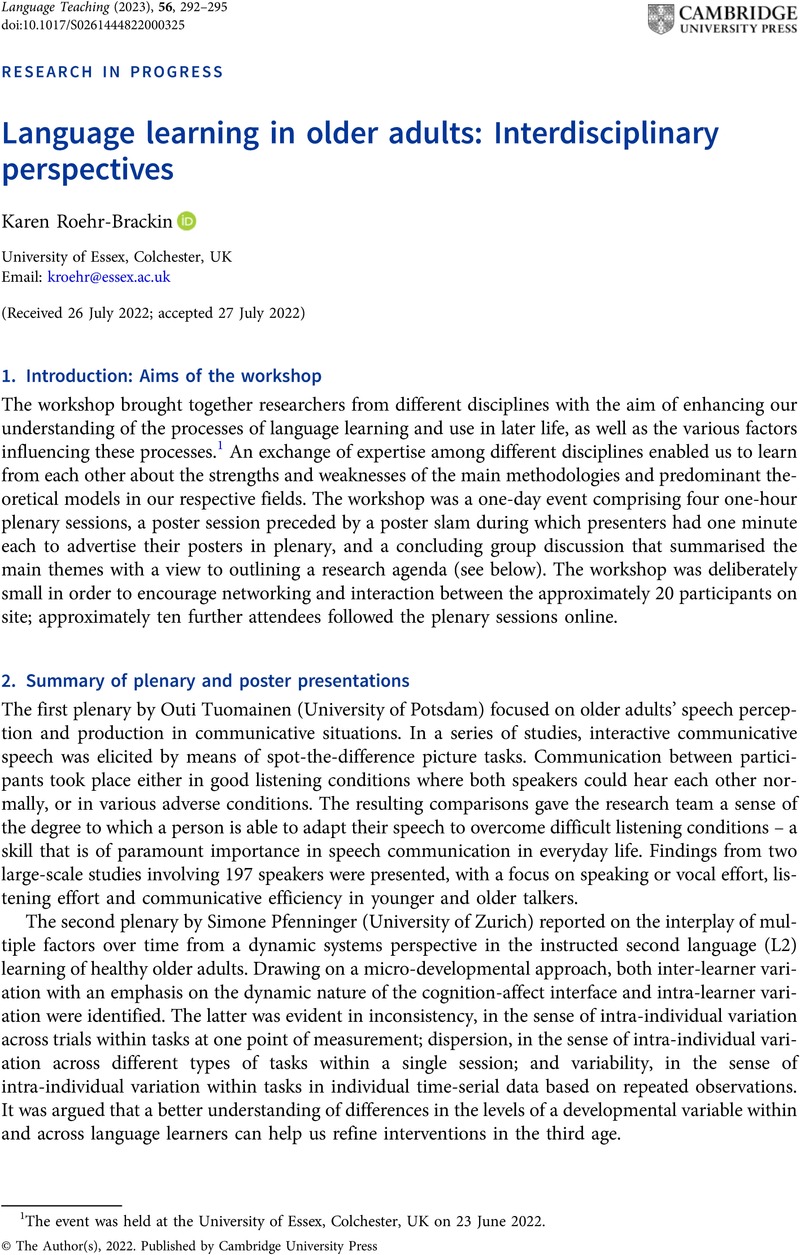No CrossRef data available.
Language learning in older adults: Interdisciplinary perspectives
Published online by Cambridge University Press: 19 August 2022
Abstract
An abstract is not available for this content so a preview has been provided. Please use the Get access link above for information on how to access this content.

- Type
- Research in Progress
- Information
- Copyright
- Copyright © The Author(s), 2022. Published by Cambridge University Press
Footnotes
1
The event was held at the University of Essex, Colchester, UK on 23 June 2022.



